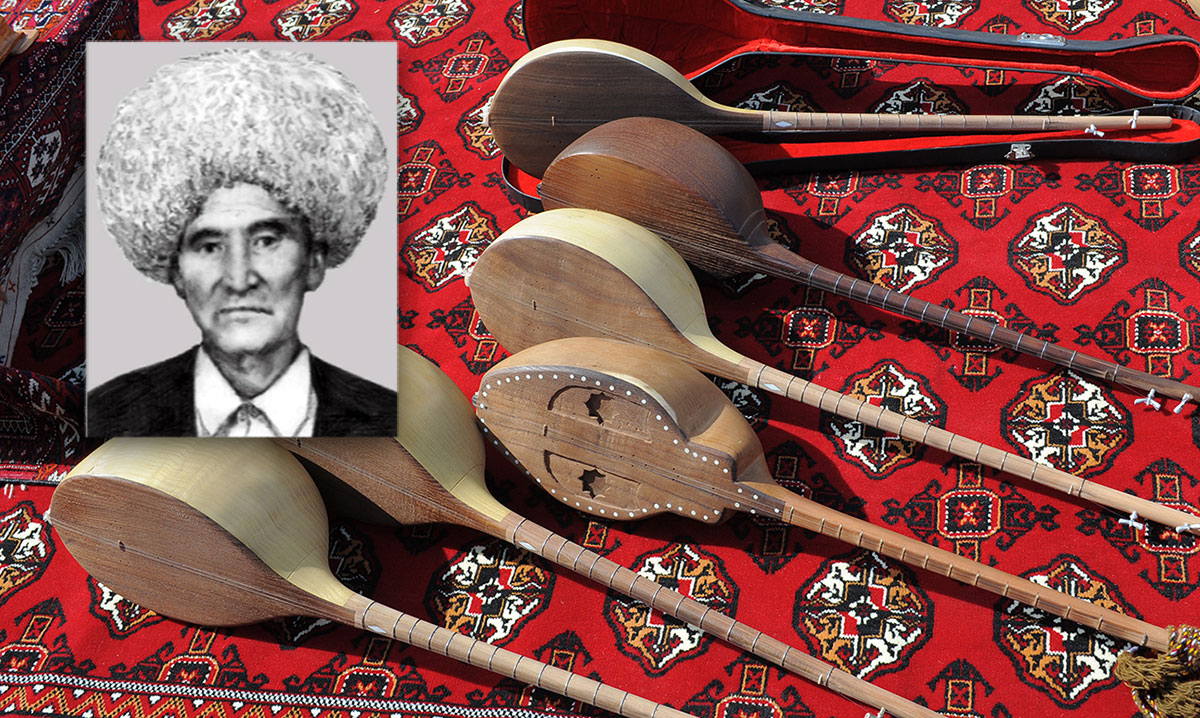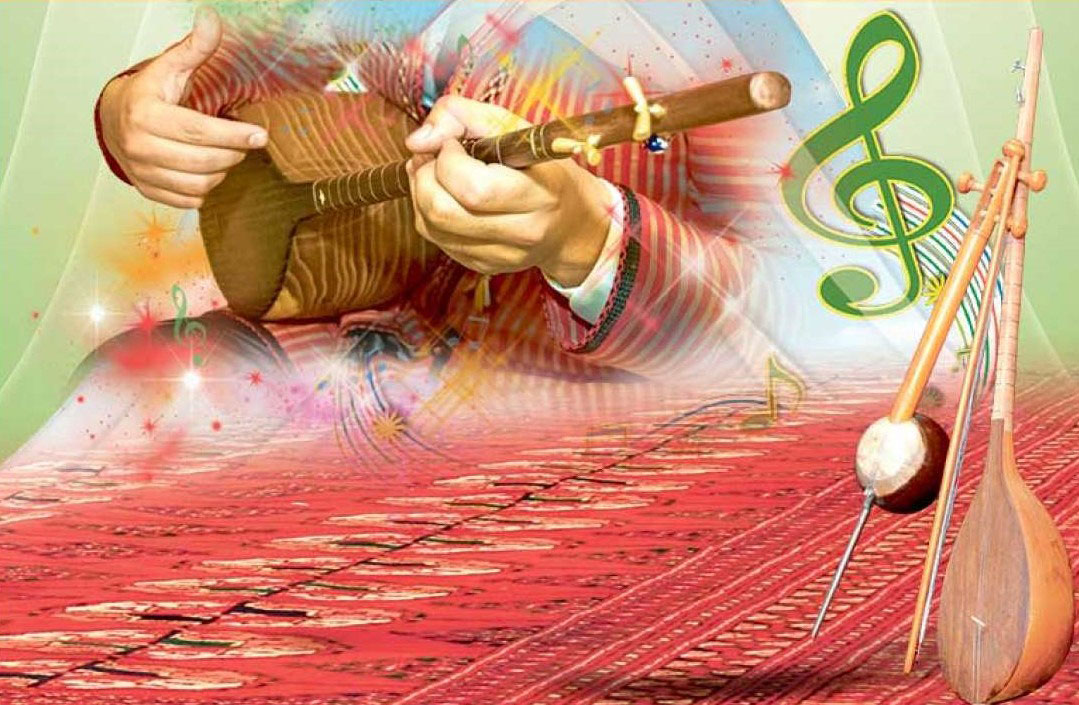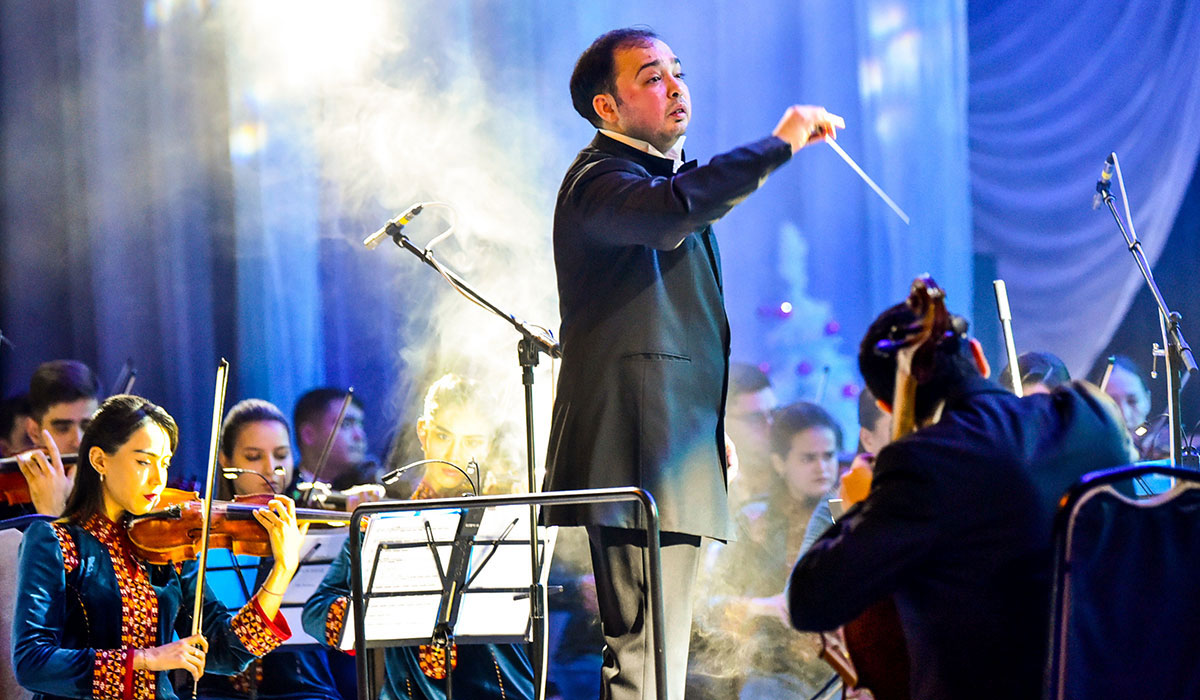These days, all the people of Turkmenistan and especially the musical community are celebrating a joyful event with great enthusiasm - the inclusion of the craft of making dutar, performing musical art of playing on it and the art of bakhshi on the UNESCO Representative List of the Intangible Cultural Heritage of Humanity.
Bagshies - musicians at all times had special honor and respect in Turkmenistan. Music for Turkmens - is the life of the people, expressed in sounds, a sincere story about anxieties and joys, suffering and happiness, about the beauty of the soul and the excitement of the heart. And what kind of music is there without the dutar - the national stringed instrument and, of course, the bagshy, who can masterfully handle this instrument. In his hands, the dutar can laugh and cry, enrapturing the listeners and making them listen to the bagshy incessantly. But the art of bagshy is not only playing the dutar, his main purpose is singing. The names of many bagshies are always heard, and the stories of their life path are shrouded in secrets and often become overgrown with legends.
There are many talented bagshies in the history of Turkmens who have won the true love of the people. One of them is Begmyrat Hojamyradov, who left behind a huge number of songs and musical works. His voice sounded everywhere in the most remote rural areas of the country. The fate of Begmyrat bagshy was destined to become a famous folk singer, the successor of the famous musical dynasty: grandfather Durdy bagshy, father Hojamyrat bagshy and father's brother Halmyrat bagshy, who have already become famous as excellent performers of folk music and playing the dutar. From early childhood, immersed in this musical atmosphere, Begmyrat did not get the dutar out of hand. Born in 1903, in mature age he achieved incredible heights in the performing art of playing the dutar. His masterliness was duly appreciated by the state. He was one of the first in the country to be awarded the title of "People's Bagshy of Turkmenistan". Today, the street in Anau, where he lived, bears his name.
It would seem, how can playing the dutar of one bagshy differ from another. Or their vocal performance of songs, destans. The instrument is the same, verses, destans are the same for everyone. However, experts distinguish the style, manner and performance skills of each bagshy. And they can accurately determine all the subtleties and, as the bagshies themselves say, which way (haysy yoly) or performing style they preach.
Begmyrat bagshy, according to the definition of experts and connoisseurs of playing the dutar, is the most striking successor of the style, the manner of performing musical works, today referred to as “Damana Yoly” (damana style). The damana style is characterized by a leisurely, measured beginning, gradually leading to a medium and higher melodic level. This sequence is repeated many times - the music almost stops, then it sounds again in full force. Such structure contributes to the deep disclosure of the musical and poetic content of the songs.
The name of the manner, to style of the damana is not given by chance. The root cause is that Begmyrat's grandfather Durdy bagshy, who lived in Anau in the middle of the 19th century, often, taking a dutar in his hands, performed his songs at festivities in an area densely populated by representatives of other ethnic minorities.
Such close mutual enrichment, mutual exchange of manners and styles of playing the dutar and performance of musical works gradually led to the fact that Durdy bagshy was able to synthesize the skill of dutar players of other nationalities and his own Turkmen national style of performance, as a result of which the same style of playing, inherent only to him, appeared. And Damana is the name of the area not far Ashgabat. From here, as the elders explain, the name of the playing style of Durdy bagshy “Damana Yoly” arose.
The people’s bagshy of Turkmenistan, Sahy Jepbarov, emphasized the particular difficulty of playing and performing songs in “Damana Yoly” in his memories:
“I did not have a chance to meet Durdy bagshy, but I communicated with his students. One of them is my mentor Hally bagshy. At one time he was a student of Durdy bagshy. Sometimes Hally bagshy said that certain songs should be performed only in the manner of Durdy bagshy, otherwise it does not work. I think that Durdy bagshy's song "Ak yuzli Maralym" (White-faced Maral) is a kind of musical monument and an example of performing skills for all bagshies. Not every bagshy will be able to perform this piece…”
At one time, many bagshies made a lot of efforts to master the style of performance of Durdy bagshy, his sons Hojamyrat bagshy, Halmyrat bagshy and grandson Begmyrat. In their manner, for example, the piece "Jereni kyblam" was performed by bagshy Oraz Sopy from the village of Gokje. Gradually, the followers of "Damana Yola" became more and more. These are Yazgeldi Kuwwadov, Han Akyyev, Amannazar Atayev, Sapar Mamiyev and others.
Today, among the folk bagshies, the performance of pieces in the manner of "Damana Yoly" is considered a kind of exam. The manner and style of performance of Durdy bagshy, his sons Hojamyrat, Halmyrat and grandson Begmyrat eventually gave impetus to the emergence of new branches of this style of performance of such pieces as "Zybagozel", "Mayagozel".
In the heritage of folk art of the bagshy of Turkmenistan, Durdy bagshy, the work of his sons and grandsons, among whom Begmyrat bagshy stood out, also occupy their honorable and worthy place.
Along with other well-known national performers, the well-known mentor of the Anau branch of the executive direction of the damana - the grandson of Durdy bagshy - Begmyrat Hojamyradov is mentioned in the book of the President of Turkmenistan Gurbanguly Berdimuhamedov "Ile döwlet geler bolsa..." (Bagshies are heralds of national happiness), dedicated to the work of the Turkmen bagshy.








